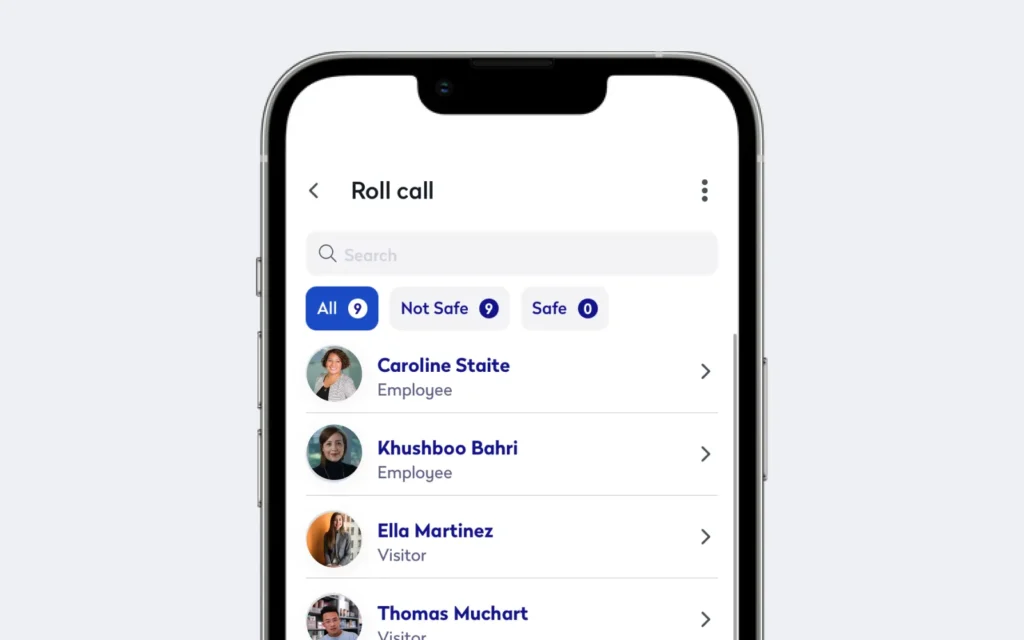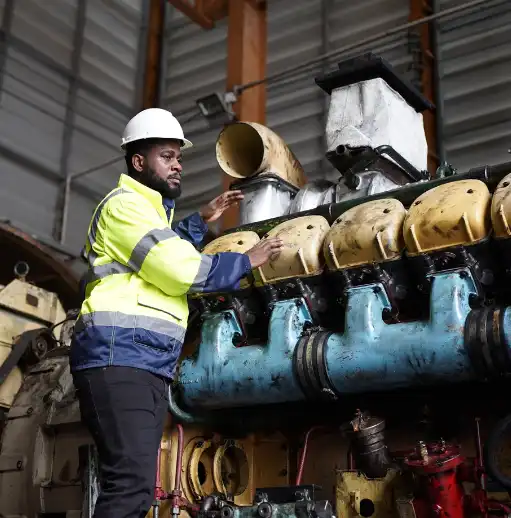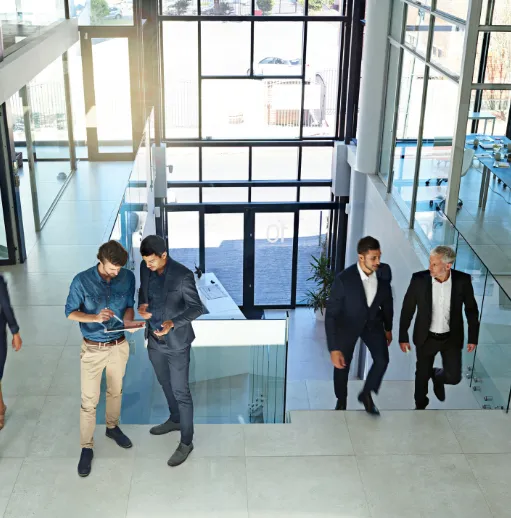
Technology has always had a push-and-pull relationship with the workplace. Sometimes, it’s the force driving innovation. Advances in communications, including emails and video calls, for example, brought the entire world closer, faster. Other times, technology plays catch-up. Social change over the last five years has seen many companies interested in leveraging new technologies to implement the hybrid work model across various departments.
But the challenge for workplace leaders and facility managers at enterprise-level organizations has always been knowing which worktech can deliver the best return on investment (ROI). Done right, technology benefits include making employees more efficient, offices more productive, and workplaces safer. It improves the employee experience, helping to attract and retain talent, which boosts the overall bottom line.
Increased overall efficiency and productivity with automation
The modern workplace has experienced a complete shift in how we spend our time. Time management has been optimized, and the efforts put into everyday tasks have been lightened. Employee productivity and efforts have been improved, allowing them to place more emphasis on more important projects.
While in the past the average workday includes a share of time-consuming manual tasks, modern worktech automates entire workflows. Making a business call used to involve checking the Rolodex, dialing the number, and then patiently waiting to be put through to the correct extension. Now, you can ask your phone to place the call for you or send a quick text message you dictate while driving into the office.
Even in best-case scenarios, when everything went right using an older manual method, everything took time. And when things went wrong, the process was even slower. If an employee noticed a problem in the office — something as simple as a light bulb that needed replacing — it took a lot of time and effort to get that information to the right department. But with today’s modern office platforms, anyone in the facility can connect with the facility or maintenance team as soon as they see an issue.

The level of expectation of clients and co-workers has also changed because of technology in the workplace, keeping everyone connected on a constant basis. Results are expected much faster than ever before based on this evolution of technology in the workplace.
Increased collaboration with desk booking and room reservations
Technology in the workplace has given us a level of communication never seen before. We can literally connect to any one of our employees, leaders and co-workers at any time, from anywhere. With this dramatic increase in collaboration platforms comes a heightened level of flexibility, allowing co-workers to facilitate continued partnership no matter where everyone may be. Teamwork is much more engaged. It’s on a whole new level.
But sometimes, people prefer the “old ways,” and many employees still look for opportunities to work with colleagues directly. In fact, according to Eptura’s proprietary research, the top two reasons people want to come into the office is to connect and collaborate with coworkers.
Organizations can implement room and desk booking solutions to help employees connect smoothly in the office. Instead of trying to organize time to work together in the office over email, employees can plan and book everything through the platform. And because everyone else on the system can see who is going to be in the office at any given time and even where they’re going to be sitting, all the guesswork is gone.
Improved cost management
The bottom line of any business is to achieve profitability. As employees are encouraged to optimize their time thanks to such technology, less time is wasted, and more time is used to focus on profitable tasks. A productive workplace is a profitable one, which is just one of the important ways that technology has changed our workplace environment for the better.
And it’s not only the employees who are more efficient. It’s the buildings, too. Facility management software platforms help organizations automate everything from data capture to reports, which means they can find new efficiencies in operations to cut costs. It might be as large a project as setting up and scheduling a preventive maintenance program that reduces downtime and increases useful life cycles. Or using sensors to track occupancy and utilization rates to right-size the entire real estate portfolio. One you know which spaces employees use most, you can start consolidating and rearranging spaces.
Stronger security with visitor management
The security of company information can be severely compromised without the implementation of proper channels of technology and software. Just as savvy hackers are using technology to try to gain access to a businesses’ sensitive information, so should a company implement innovative technology as a haven against such breaches of security. Technology in the workplace helps to make sure that information is accessible only to the right people and makes it nearly impossible for pertinent company information to be leaked.
But data security is only one part of making a space safe. With modern visitor management systems, you can control who can come into the building. Old manual login books are slow and prone to error. It takes the right people a long time to get into the building without making it much harder for the wrong people to slip through the data cracks. With a software solution, guests can register long before they arrive, and once they’re approved, receive a QR code that makes check-in seamless.

That covers the day-to-day of controlling access. In an emergency, having an up-to-date list of everyone who’s in the building can now help facility managers save lives. As people exit the facility and gather at muster points, managers can check their names off the list, which can then be shared in real time as soon as first responders arrive.
Better employee experience
While technology in the workplace is just one factor that contributes to an employee’s overall experience, it’s a significant one. Companies that invested heavily in employee experience earned more than four times the average profit and twice the average revenue compared to those that didn’t.
Technology shapes an organization’s culture and influences how employees interact with the physical workspace. And employees today expect the technology they use in the workplace to be just as advanced and intuitive as the apps they use on their smartphone. That’s why forward-thinking organizations are investing in employee experience solutions that include mobile apps, kiosks, and even IoT sensors.
Compromising your company’s level of profitability, security and productivity is something your business simply cannot afford. With the implementation of technological elements and office management software, such components of your business can be much more adequately protected and streamlined.
There’s no denying the incredible impact that technology in the workplace has had on the traditional office. It’s up to business leaders to keep up with this ever-evolving trend in the most efficient means possible.


